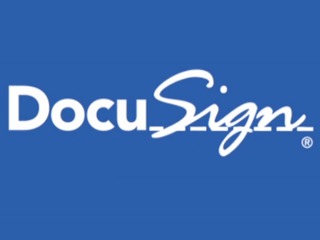How does Course Hero make money?
The company offers a freemium model, where users can pay to access more content and ask questions
Read more...
It's kind of hard to believe how much has changed in just the last 15 years. Back then, all of our information was on paper, or on a computer, and once it was lost, it was lost forever. Since then the world has gone digital and paperless, and now, all of that stuff would be on a server ready to be accessed anywhere.
Many companies have taken advantage of this revolution was transaction management company DocuSign, which provides electronic signature technology.
It allows its customers to close contracts in a secure environment, provides authentication on the front end, as well as intregrations, which enables customers to pull data from those sources, including SAP, Google and Salesforce.
The company also does templates, so that clients with several millions of customers can send updates and see who approved them. And it provides a legally binding audit trail, to see who signed what and where.
DocuSign never charges recipients to complete or sign a document or transaction. Instead, it makes money through a classic SaaS model with a freemium model, packages for individual professionals and small businesses, as well as global enterprises.
It offers five pricing tiers:
The company also offers special plans for realtors, though it It is used by a number of different verticals, including financial services, insurance, technology, healthcare, government, manufacturing, communications, retail, consumer goods, higher education and non-profits.
As a private company, DocuSign does not share specifics around revenue streams or number of users by segment.
The company now has more than 100,000 companies as customers, more than 50 million of users in 188 countries, and more than 50,000 new unique users joining The DocuSign Global Trust Network each day. Customers include Morgan Stanley, HP, Microsoft, Salesforce, Walmart and Tesla. The company also counts 10 of the top 15 U.S. financial services companies as customers, 13 of the top 15 U.S. Insurance carriers, and 12 of the top 15 global pharmaceutical companies as customers.
Founded in 2004, the company has raised $433 million in funding, including a $233 million round earlier this month, which brought its valuation to $3 billion.
Investors in the company include Google Ventures, SAP Ventures, VISA, Sands Capital Ventures, Brookside Capital, Bain Capital Ventures, and Iconiq Capital, among many others.
The company offers a freemium model, where users can pay to access more content and ask questions
Read more...The company sells a premium version of its free product to parents, schools and districts
Read more...Initially a platform for renting textbooks, it now makes 90% of revenue from software subscriptiions
Read more...




